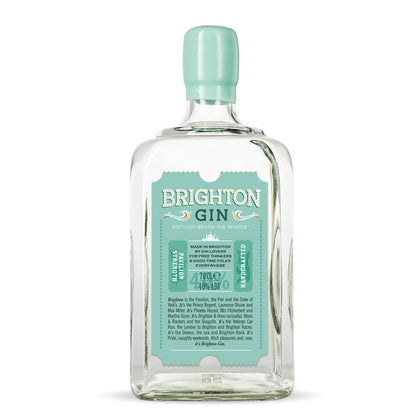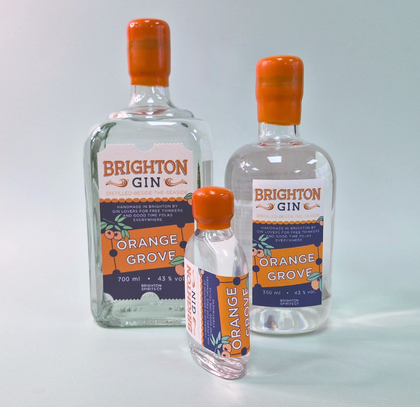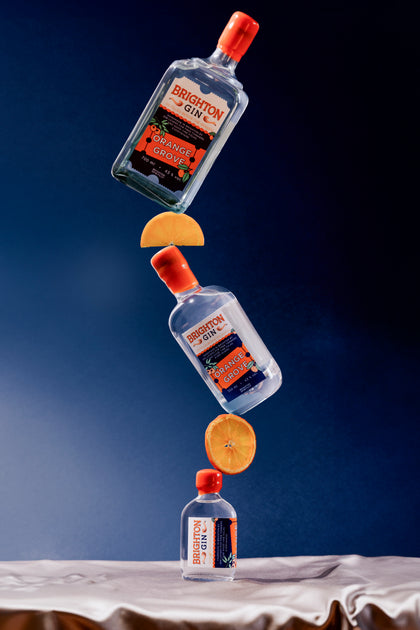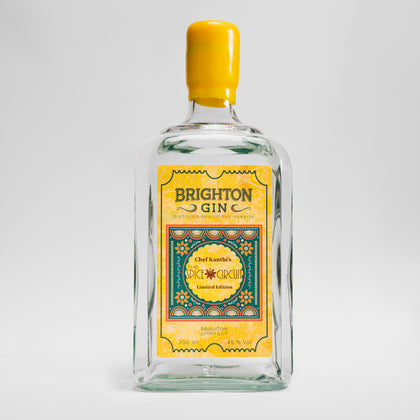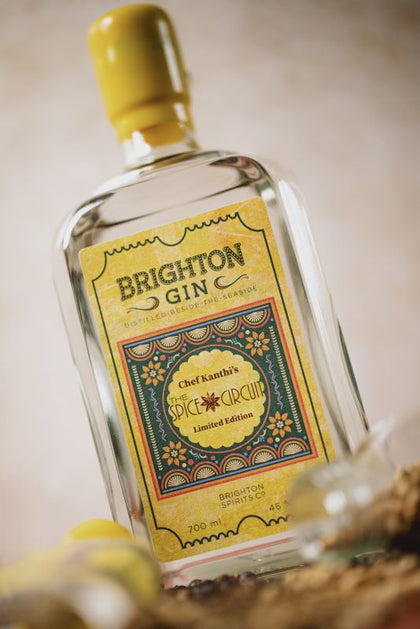How We Make Brighton Gin
If you happen to visit Brighton Gin on a distilling day you'll be met by an aromatic curtain of citrus as Paul, our superstar lead distiller, peels dozens of fresh oranges and limes that bestow a lively zest to both our Pavilion and Seaside gins. However, these are just two of the all-natural ingredients that go into our award-winning Brighton Gin - read on to find out the other ingredients and exactly how we create our handmade gin.
Brighton Gin starts with a base spirit produced from 100% organic wheat which is then distilled with a mix of botanicals, the primary one being juniper berries which are actually seed cones from a coniferous tree. Juniper is the main ingredient for flavour and imparts the characteristic pine note that makes gin taste like nothing else. Then local coriander seeds are added for their subtle lemon and spice, angelica root, which imbues earthiness and acts as a flavour fixative by binding volatile aromas to prevent them from evaporating, and finally, milk thistle, indigenous to the South Downs.


Distillation
Distillation is the process that concentrates alcohol derived from fermented fruits, cereals and other natural sources of sugar. In the case of Brighton Gin, the sugars come from malted wheat. The conversion of the fermented liquid (known as wash) into spirit happens in a vessel known as a still, when steam heats the wash and the alcohol it contains is vaporised and condenses on metal plates.
That distillate is the base spirit and it tastes almost neutral so we add the botanicals to it and leave them slowly to infuse it with flavour. The spirit is heated to start re-distillation and as the vapours rise, they pass through a column packed with lime and orange peel which intensifies the citrus character, and as it cools in the condenser converts back into liquid. It is now gin!


Ancient Arts
Distillation is an ancient technique and some academics believe that Chinese alchemists might have discovered the process in the 1st millennium BC and used it for producing medicines.
The ancient Greeks distilled water to purify it, and Arab chemists experimented by distilling fruits and flower essences for perfumes. The word alcohol may derive from the Arabic word for a ghostly spirit al ghūl because that is what the steam that condenses into liquid resembles.
Distillation was introduced into Europe by the Moors, Arabs from north Africa, who occupied Spain from the early 8th century but they were not producing alcoholic spirit. That came later when 11th century Catholic monks in Italy experimented by distilling wine and adding juniper to make medicinal elixirs for the relief of ailments including kidney and gastrointestinal problems.
London Dry
Our gin is produced in the south-coast city of Brighton but you may have noticed the words London Dry on the bottle label of Pavilion. So what is London Dry gin? It is a style that by law must be produced through redistilling ethyl alcohol with natural botanicals that aromatise and flavour the spirit during the distillation process and not afterwards. No artificial ingredients may be used and apart from a tiny amount of sugar to sweeten the spirit the only extra substance that may be added is water. We use purified H2O to dilute the spirit down to 40% ABV for Pavilion and 57% ABV for Seaside, our navy strength gin which is not only higher in alcohol strength but contains four times the juniper and double the citrus that Pavilion does (see this link for an explanation and history of this super-charged type of gin). As for sugar, we add none whatsoever because we want Brighton Gin to be ultra-dry and for the natural flavours to shine.
Making Brighton Gin in small batches is crucial to producing the best possible spirit so we restrict the amount we distil in one session to 250 bottles. Our entire process is done by hand, from peeling the fruit, to filling and labelling bottles, and sealing them with wax which is vegan, as all the other components of the gin are – including the label glue!


It will come as no surprise that we worship at the altar of juniper and our aim is to produce the finest gin possible for cocktails, and also gin that is smooth enough to sip neat. That’s why we use the best quality organic wheat spirit, fresh rather than dried citrus peel, and very importantly give the gin time to rest and marry the flavours together.
Next time you open a bottle of Brighton Gin how about testing our claim by pouring a shot over cubes of ice. There will be no unpleasant alcohol burn, just luscious pine, citrus and spice to reward your tastebuds. To us that is the sign of a perfect gin!



